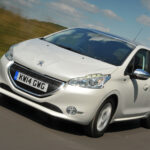In January 2025, Chinese EV makers experienced a decline in sales compared to the previous month, with the exception of Geely, which saw a slight increase. BYD’s sales were down by 42%, Nio by 56%, and Xpeng by 17%, while Geely managed to increase sales by 4% compared to December.
Key points to follow from the sales data include Xpeng outselling Li Auto, Nio’s brand experiencing a decline from the previous year, the impact of Chinese New Year on sales, Geely Auto’s successful increase in EV sales despite the holiday, and Xiaomi maintaining strong numbers.
All delivery data is sourced from company filings or social media posts, with Xiaomi being the only exception, providing vague numbers. The data focuses on sales of new energy vehicles (NEVs), which include BEVs, PHEVs, and FCEVs. FCEV sales are minimal in China.
As of February 3, 2025, the leaderboard for January sales is as follows:
– BYD sold 296,446 passenger NEVs, down 41.8% from December but up 47.5% from the previous year.
– Geely Auto sold 121,071 passenger NEVs, up 4.2% from December and 83.9% from the previous year.
– HIMA sold 34,987 EVs, down 29.3% from December.
– Xpeng sold 30,350 passenger NEVs, down 17.3% from December but up significantly from the previous year.
– Li Auto sold 29,927 passenger NEVs, down 48.9% from December but slightly up from the previous year.
– Nio group sold 13,863 passenger NEVs, down 55.5% from December but up from the previous year.
– Xiaomi reported sales of over 20,000 units of its SU7 sedan.
The sales data reflects the performance of each Chinese EV maker in the competitive market. Despite some declines in sales, companies like Geely and Xpeng have managed to navigate challenges and maintain their positions. The EV industry in China continues to evolve, with new models and brands entering the market, shaping the future of electric mobility.







